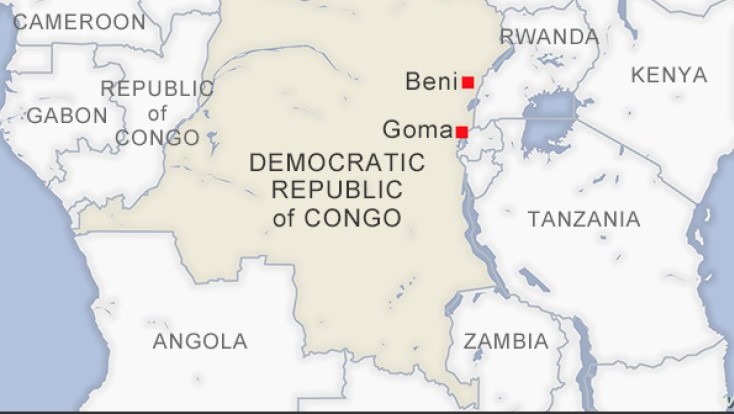Zambia And DRC Border Dispute Heating Up

Southern Africa region is no stranger to neighbouring countries disputing borders. With 14 countries still separated along colonial lines, grievances of a bit of land that belongs to one not the other are common.
The latest in the saga is a bitter dispute between Zambia and Democratic Republic of Congo. Both countries reclaim a piece of land as their propriety, the wrangling over it simmered and led to clashes between the countries’ armies.
It appears that the border dispute between Zambia and the Democratic Republic of Congo is getting ‘hot’, according to international media.
The DRC beefed up its military presence in the area, leading to clashes between the two armies, according to sources familiar with the case.
The dispute has led to the displacement of hundreds of people in Moba.
Zimbabwe’s President Emmerson Mnangagwa who chairs the SADC Organ on Politics, Defence and Security Co-operation, has since appointed his Secretary for Foreign Affairs James Manzou, to lead the mediation.
This week, President Mnangagwa’s spokesperson, George Charamba, told the Southern Times newspaper that “the president has designated Ambassador Manzou to handle the matter and I understand they have been making efforts to deal with the conflict diligently. They met on Monday this week (and) I can tell you significant progress has been made so far in terms of trying to find an amicable solution to the dispute.”
Kinshansa and Lusaka have been fighting over control of a 13-square kilometer piece of land on their border.
The decades-old wrangling sparked again two months ago when the DRC accused Zambia of moving to occupy its territory in Moba region.
DRC’s President Felix Tshisekedi on May 11, 2020 dispatched his Foreign Affairs Minister, Marie Nzeza, to Harare with a request for the SADC Organ chair to mediate in the dispute.
Mnangagwa presented the matter to his counterparts in the region.
Zimbabwe was mandated by SADC to ensure maintenance of peace, security and rule of law within the region, according to the Herald newspaper of Zimbabwe.
The dispute dates back to the colonial era and has flared on and off since the British and the Belgians divvied up Zambia and the DRC for themselves.
There was an attempt to settle the issue in 1989 when a treaty was signed between then Presidents Kenneth Kaunda (Zambia) and Mobutu Sese Seko (DRC), and beacons were placed along the border as markers.
However, border clashes continued and the two countries are yet to find a lasting resolution to the dispute.
Such border disputes are common across the region – with Botswana and Namibia, Mozambique and Malawi, and Malawi and Tanzania, among others – at various points all contesting shared boundaries.
This has been attributed to ambiguities created by arbitrarily drawn borders at the time of Europe’s partitioning of Africa.
For instance, Botswana and Namibia have previously faced off over Kasikili/Sedudu Island on the Chobe River that borders the two countries.
The matter, also mediated in by Zimbabwe, was settled by the International Court of Justice in 1999 when it was ruled the island fell under Botswana’s territory.
Support Our Journalism
There are millions of ordinary people affected by conflict in Africa whose stories are missing in the mainstream media. HumAngle is determined to tell those challenging and under-reported stories, hoping that the people impacted by these conflicts will find the safety and security they deserve.
To ensure that we continue to provide public service coverage, we have a small favour to ask you. We want you to be part of our journalistic endeavour by contributing a token to us.
Your donation will further promote a robust, free, and independent media.
Donate HereStay Closer To The Stories That Matter




